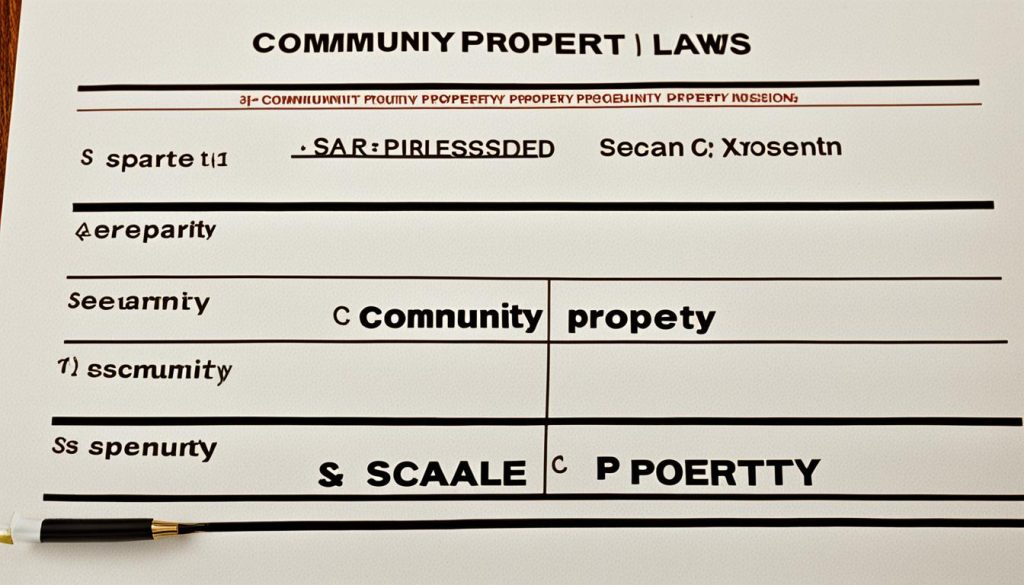Journey with Our Top Rated Divorce Lawyers in Fort Worth for Comprehensive Legal Guidance
Filing for divorce can be a complex and emotional journey. That’s why it is crucial to have trusted divorce lawyers in Fort Worth by your side, providing comprehensive legal guidance every step of the way. Our experienced team of family law specialists is here to support you through this challenging process and ensure that your rights are protected.
When it comes to divorce, having a seasoned divorce attorney in Texas is essential. Our lawyers have a deep understanding of the state’s divorce laws and are well-versed in handling even the most intricate cases. With their expertise and knowledge, they can provide you with holistic legal support for your divorce, addressing all aspects of the process, from filing for divorce to finalizing the proceedings in an efficient manner.
Divorce proceedings in Fort Worth can involve various complexities, such as child custody, support, and visitation. Our team of skilled attorneys will guide you through these sensitive matters, ensuring that the best interests of you and your children are prioritized. We will work tirelessly to negotiate fair agreements and make sure that your rights as a parent are protected.
Property division is another crucial aspect of divorce. Texas follows community property laws, which means that all marital assets are considered jointly owned. Our attorneys will help you navigate the intricacies of property division, ensuring that you receive a fair settlement based on the specific circumstances of your case.
Going through a divorce is never easy, but with the trusted divorce lawyers in Fort Worth, you can have peace of mind knowing that you have a dedicated legal team on your side. We are committed to providing you with the support and guidance you need to navigate this challenging time in your life.
Key Takeaways:
- Having trusted divorce lawyers in Fort Worth is essential for comprehensive legal guidance during your divorce proceedings.
- Our experienced team of family law specialists is well-versed in Texas divorce laws and can provide holistic legal support.
- We will guide you through child custody, support, and visitation matters, ensuring the best interests of you and your children.
- Property division can be complex, but our attorneys will work to ensure a fair settlement based on your specific circumstances.
- By choosing our trusted divorce lawyers, you can have the peace of mind knowing that you have dedicated legal support throughout your divorce journey.
Texas Divorce Requirements: Residency and Filing
When it comes to getting a divorce in Texas, it’s vital to understand the residency requirements before initiating the process. Texas has strict guidelines that mandate one party to have lived in the state for at least six months and in the county where the divorce is filed for the past 90 days. Meeting these residency requirements is essential for a successful divorce filing.
Unlike some states, Texas does not have any separation requirements. This means that the divorce process can start as soon as both parties have decided to end their marriage. To initiate the process, you will need to file divorce papers with the court and send copies to your spouse. It’s essential to ensure that all necessary documents are properly prepared and filed to avoid any delays or complications.
Divorce papers usually include a petition for divorce, which outlines the reasons for the divorce, along with any requested relief or settlement terms. Additionally, they may include forms related to child custody, support, and property division if applicable. Filing for divorce marks the official beginning of the legal proceedings.
It’s worth noting that filing for divorce in Texas can be complex, especially when dealing with child custody, support, or complex property division issues. Therefore, seeking the guidance of an experienced divorce attorney is highly recommended. They can assist in preparing and filing the necessary documents, ensuring compliance with all legal requirements, and advocating for your rights throughout the process.
Understanding the residency requirements and the process of filing for divorce is crucial when navigating the complexities of divorce proceedings in Texas. By ensuring that you meet these requirements and seek proper legal guidance, you can start the divorce process on the right foot and work towards a fair resolution.
Types of Divorce and Separation Options
In the state of Texas, couples have various options when it comes to divorce and separation. Understanding these different types of divorce can help individuals make informed decisions and choose the best path forward. Here are the main types of divorce and separation options available:
Fault and No-Fault Divorce
Firstly, Texas allows for both fault and no-fault divorces. In a fault divorce, one spouse alleges that the other is responsible for the breakdown of the marriage due to actions such as adultery, cruelty, or abandonment. In a no-fault divorce, the couple simply states that there are irreconcilable differences that have led to the end of the marriage.
Uncontested Divorce
An uncontested divorce occurs when both parties agree to all the terms of the divorce, including child custody, support, and property division. This type of divorce typically involves less conflict and can often be resolved more quickly and amicably.
Default Divorce
A default divorce is declared when the other party fails to respond to the divorce petition or cannot be located. In such cases, the court may proceed with the divorce and make decisions based on the available information.
Mediated Divorce
Mediated divorce involves negotiating the terms of the divorce with the assistance of attorneys and a neutral mediator. This process allows couples to work together to reach a mutually agreeable resolution and can help minimize conflict.
Collaborative Divorce
Collaborative divorce is a more gradual process where parties meet to discuss and resolve one topic at a time. This approach aims to foster open communication and cooperation between spouses, often resulting in a more peaceful and satisfactory outcome.
Arbitrated Divorce
In an arbitrated divorce, couples present their cases and fight for their priorities in front of an arbiter, who then makes decisions on their behalf. This option is often chosen when spouses have significant disagreements and need a neutral third party to make binding decisions.
Litigated Divorce
Litigated divorce involves going to court and having a judge make decisions on matters such as child custody, support, and property division. This type of divorce can be more adversarial and costly, but it may be necessary in cases where resolution through negotiation is not possible.
Each type of divorce has its own advantages and considerations. It is crucial to consult with a trusted divorce attorney to determine which option is most suitable for your specific situation.
| Type of Divorce | Process | Advantages | Considerations |
|---|---|---|---|
| Fault and No-Fault Divorce | Varies depending on the case | Fault divorce can provide a sense of justice No-fault divorce allows for a more amicable split |
Fault divorce may require extensive evidence No-fault divorce still requires agreement on terms |
| Uncontested Divorce | Agreement between both parties | Less conflict and stress Quicker and more cost-effective |
Requires full agreement on all terms May be challenging in complex situations |
| Default Divorce | Court proceeds in the absence of the other party | Allows for divorce in cases of non-response or disappearance | May be more difficult to address specific issues with an absent party |
| Mediated Divorce | Negotiation with the help of attorneys and a mediator | Allows for active participation in decision-making Can preserve relationships and reduce conflict |
Requires willingness to compromise and reach agreements May not work in high-conflict situations |
| Collaborative Divorce | Gradual discussion of one topic at a time | Promotes open communication and cooperation Fosters a more peaceful and satisfactory outcome |
Requires commitment to cooperation and patience Can be a slower process compared to other types |
| Arbitrated Divorce | Presentation of cases in front of an arbiter | Provides a neutral third party to make binding decisions Can offer a faster resolution compared to litigation |
Less control over the final outcome Costs associated with hiring an arbiter |
| Litigated Divorce | Court proceedings with a judge making decisions | Allows for legal representation and advocacy Enforcement of court orders |
Higher costs and longer process Potential for heightened conflict and animosity |
Child Custody, Support, and Visitation in Texas
When it comes to divorce cases involving children, child custody, support, and visitation are crucial considerations. The well-being and stability of the child are of utmost importance, and Texas child custody laws provide guidelines to ensure their best interests are protected.
Child support is an essential aspect of divorce cases involving children. Typically, the non-custodial parent is responsible for providing financial support to ensure the child’s needs are met. In Texas, child support payments are determined based on state guidelines and continue until the child reaches the age of 18 or graduates from high school.
Child custody arrangements can be joint or sole, depending on the circumstances and what is considered best for the child. The court makes decisions regarding custody based on various factors, including the child’s well-being, the relationship between the child and each parent, and the ability of the parents to cooperate and provide a stable environment.
Visitation rights are usually granted to the non-custodial parent, allowing them to spend time with the child. It is generally in the best interests of the child to maintain a relationship with both parents. However, if there is a history of abuse or other issues that could potentially harm the child, the court may restrict or deny visitation rights to ensure the child’s safety.
“Child custody and visitation rights play a significant role in ensuring the emotional and psychological well-being of children during and after a divorce.”
Understanding the intricacies of child custody, support, and visitation laws in Texas can be overwhelming. It’s important to consult with a qualified divorce lawyer who specializes in family law and has experience in handling cases involving children. They can provide expert guidance and ensure that you are fully aware of your rights and obligations.

| Child Custody | Child Support | Visitation | |
|---|---|---|---|
| Definition | The legal arrangement for the care and guardianship of a child | Financial assistance provided by the non-custodial parent for the child’s needs | Allows the non-custodial parent to spend designated time with the child |
| Determined by | The court, based on the best interests of the child | Texas child support guidelines | Court order or mutual agreement between the parents |
| Duration | Ongoing until modified by the court | Until the child turns 18 or graduates from high school | As determined by the court or mutual agreement |
Property Division in Texas
In the state of Texas, property division plays a crucial role in the process of divorce. Texas is a community property state, which means that both parties equally own all marital assets. However, it’s important to note that property division does not necessarily have to be equal.
When it comes to a contested divorce, where the spouses cannot agree on the division of their assets, the judge will make the final decision. The judge will consider various factors, including fault and the health of each spouse, to ensure a fair and just property division.
It is crucial for individuals going through a divorce in Texas to understand the state’s property division laws. Working with a knowledgeable and experienced Fort Worth divorce lawyer is essential to protect your interests and ensure that your property division is done according to Texas law.
Equitable Distribution and Protecting Your Interests
“In a contested divorce, the judge will divide property in a way that is considered ‘just and right,’ taking into account factors such as fault and the health of each spouse.”
Equitable distribution of property means that the court aims to divide assets in a manner that is fair and reasonable given the circumstances of the case.
During the property division process, the judge will consider several factors, including:
- The length of the marriage
- The financial situation and earning capacity of each spouse
- The age and health of each spouse
- The education and employability of each spouse
- The contribution of each spouse to the acquisition of marital property
- The value of separate property owned by each spouse
- Any prenuptial or postnuptial agreements
By understanding the factors that influence property division and working closely with a skilled Fort Worth divorce lawyer, you can protect your interests and ensure a fair distribution of assets.

Conclusion
When going through a divorce, it’s crucial to have the support of a trusted divorce lawyer in Fort Worth who can provide comprehensive legal guidance. With their expertise and experience in family law, these trusted attorneys can navigate the complexities of divorce proceedings and ensure efficient and favorable outcomes.
From the initial filing of divorce papers to understanding the residency requirements in Texas, a divorce lawyer in Fort Worth can guide you through the necessary steps with ease. They can provide invaluable assistance in matters such as child custody, support, and visitation, ensuring the best interests of your children are protected.
One of the most critical aspects of divorce is property division, especially in Texas, a community property state. With a seasoned divorce attorney by your side, you can navigate the equitable distribution of marital assets, ensuring a fair settlement that considers factors such as fault and individual circumstances.
During this challenging time, having a trusted divorce lawyer in Fort Worth not only provides you with comprehensive legal support but also allows you to make informed decisions regarding your future. With their guidance, you can prioritize your interests and obtain an efficient divorce that helps you move forward with confidence.




